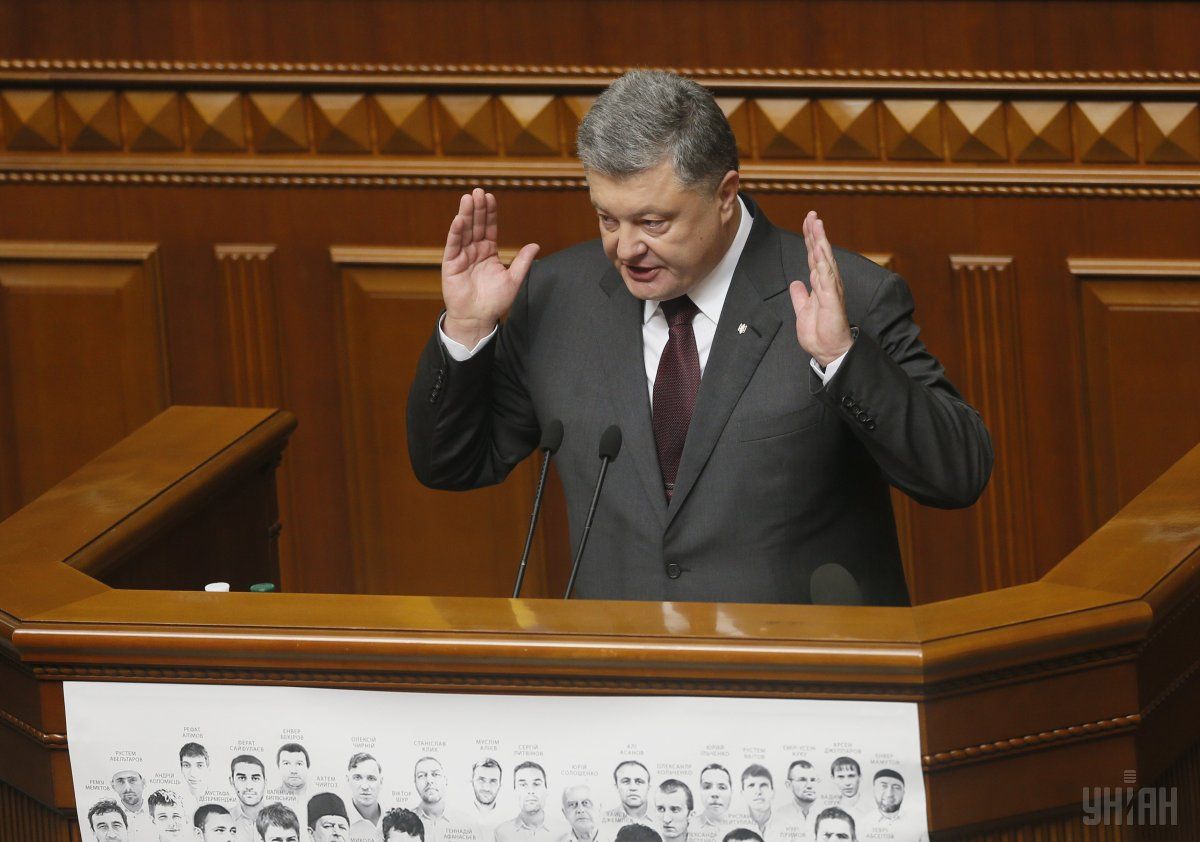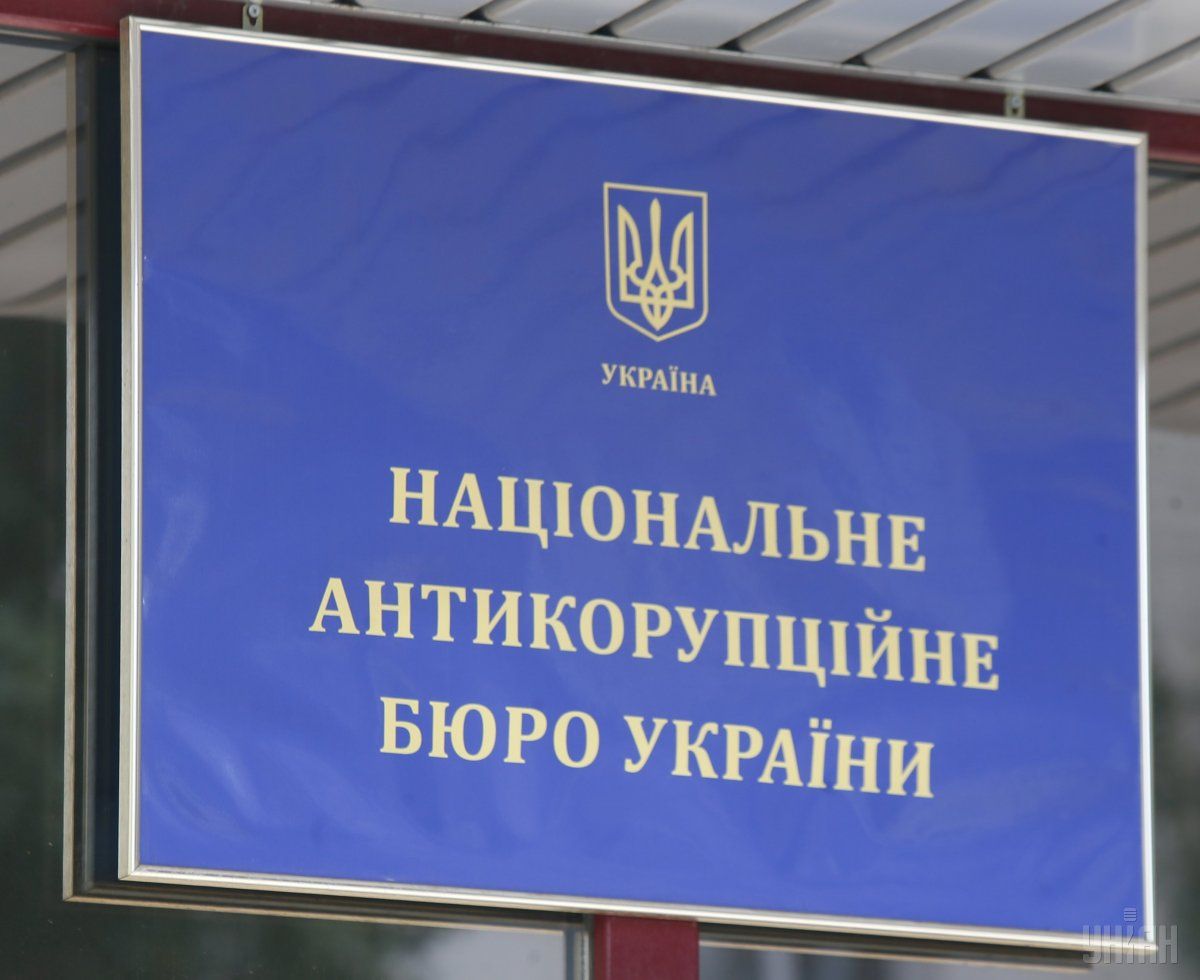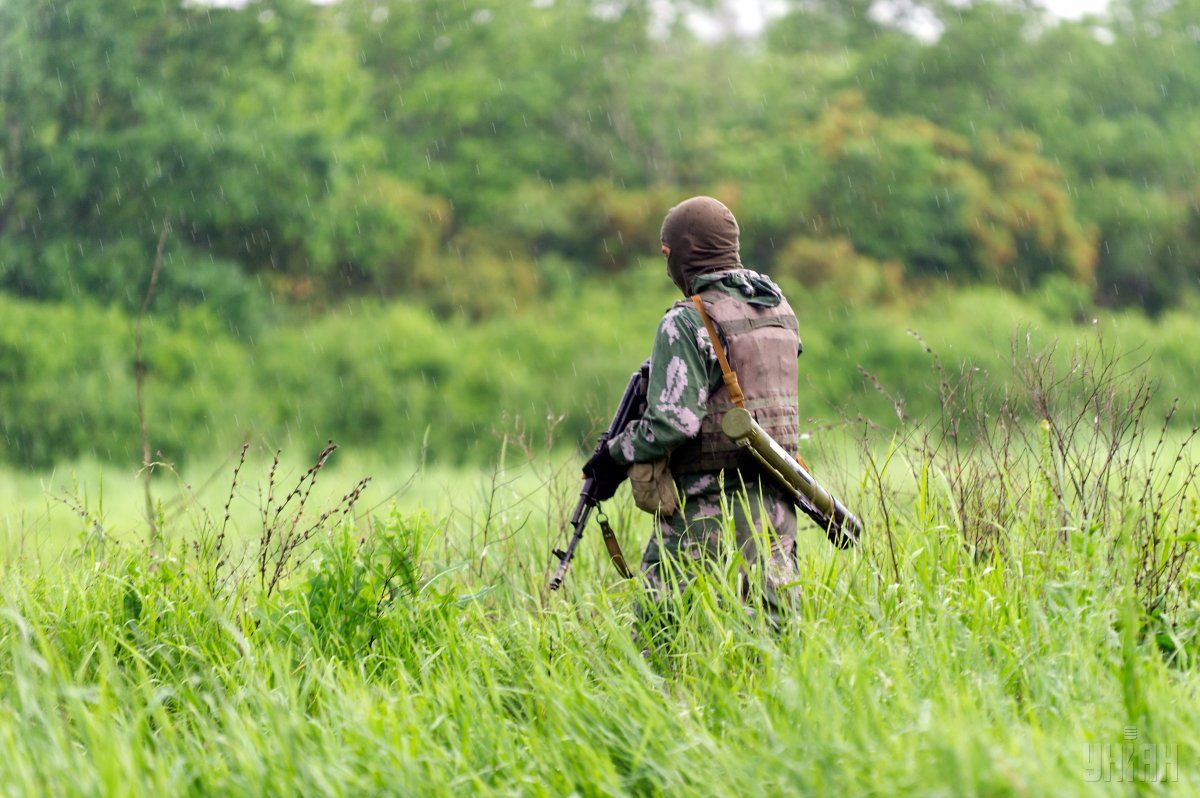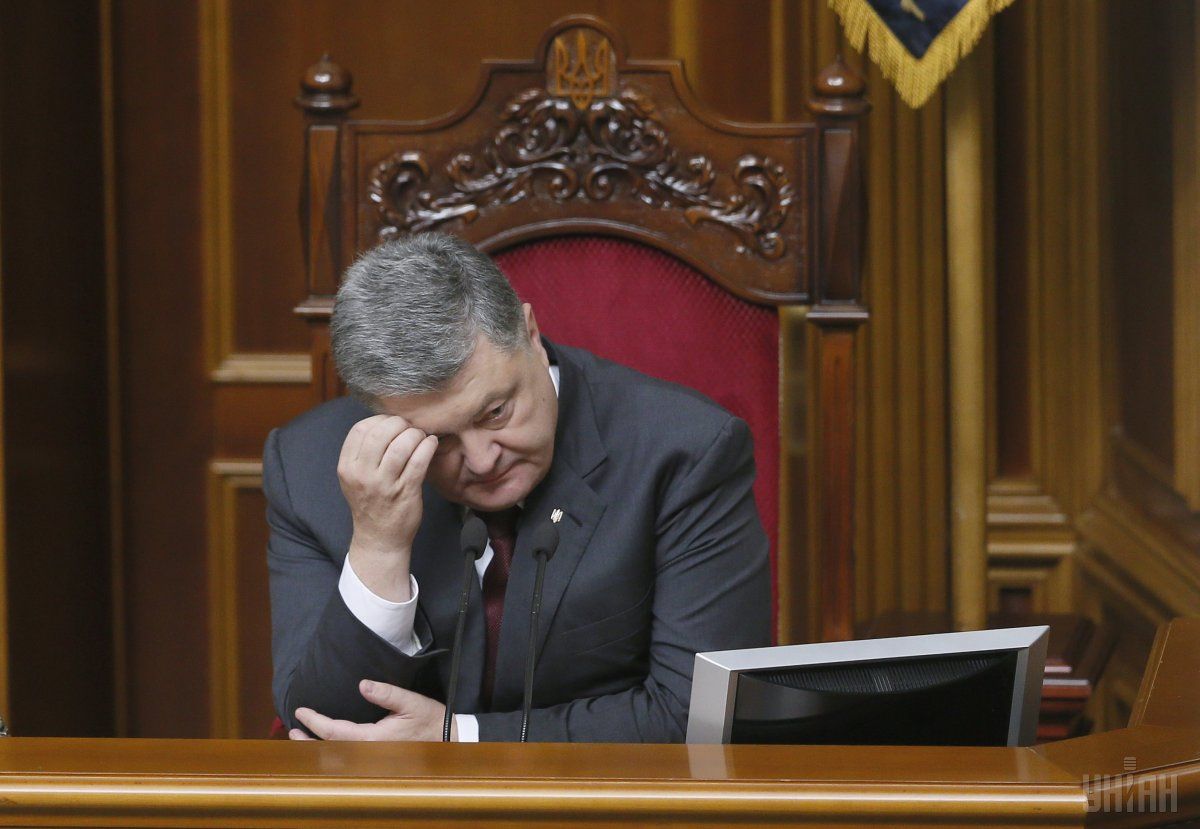
President’s silence
Today’s address of President of Ukraine Petro Poroshenko to the Verkhovna Rada was not fundamentally different from the previous two. But there was no place in it for a few topics, on which the Head of State chose to remain silent.
For the first time, Poroshenko addressed the newly elected Verkhovna Rada in late November 2014. Traditionally, as it was with the messages of the former presidents of Ukraine, the draft analytical report, of which the main messages were voiced by the president, was prepared by the National Institute for Strategic Studies. But, unlike his predecessors, Poroshenko was more convincing in his speech.
Firstly, there was an impression that Poroshenko was actually aware of what he was talking about, and his words would not counter his actions. Secondly, that’s because he’s much better of an orator than, say, the “Rostov outcast”, and much more specific and concise than the “beekeeper president”. Incidentally, Yanukovych in 2013 went as far as not delivering the address in person, limiting the procedure to simply passing the report’s readout to the MPs. However, some abstracts matched neither the program of the then ruling Party of Regions, nor the actual steps of the president (in particular, it was about Euro-integration). As a result, Yanukovych was harshly scolded by Moscow for that notorious address.
The president’s annual address to the Rada is not just a tribute to some sort of political fashion. This is the formal document signed by the Head of State (Article 106 of the Constitution) on the internal and external situation of Ukraine. The paper is drafted based on the analysis, identifying the most important directions for the country’s economic, political and social development. Actually, the text voiced by the president must be taken into account in the work of the government, individual ministries and other central executive authorities, local state administrations, as it defines the key strategic and tactical objectives for the upcoming year.
Years go by, theses don’t change
Considering the situation in which Ukraine found itself in 2014, it was not surprising that Poroshenko was then speaking in Parliament about the Russian threat and expressed hope that the Minsk Agreement (the first one) would work. Also, the Head of State emphasized the important reforms, in particular, of the law enforcement agencies, the courts and defense sector. He did not fail to mention the fight against corruption, strengthening cooperation with NATO, and the possibility to apply for EU membership in the foreseeable future...
By the second annual address (in June 2015), little has changed in the country, in principle: the Russian threat has not gone anywhere (although the Ukrainian army, finally, with the joint efforts of government and volunteers, has turned into a real military machine), Minsk Agreement (the second one) were "working" with varying degrees of success, while Ukraine was still awaiting the announced reforms and no brilliant victories were scheduled in the ongoing fight against corruption. "We have learned to identify corrupt officials and put them into a spotlight but, unfortunately, criminal penalties have not yet become inevitable. The case files are either lying idle in the courts, or they get ripped apart, or get dissolved as early as on their way to the courts," said the president a year ago.

In other words, compared to 2014, there were no drastic changes in many areas, despite the fact that by the time of the President's speech in parliament, the National Anti-Corruption Bureau has launched its work, the start has also been given to the brand new patrol police and the purge in the Prosecutor General’s Office. All these "reforms" just couldn’t be called full-fledged. "A year ago, speaking in this Hall, I announced an anti-corruption pact between the public and the government: officials do not take, while people do not give. I can say today that none of the parties has complied with this pact yet. Realizing that the government bears much greater responsibility, I am asking society for help in the fight against this evil," Poroshenko said back in 2015.
However, nothing has crashed to pieces either between the first and the second address: anti-Russian sanctions were enforced (and continue to be enforced today) – Ukraine’s Western partners have maintained their support for Kyiv. At the diplomatic level, though with difficulties, the fight to regain Crimea continued. Donbas was neither given up on in favor of the Kremlin, while the amendments to the Constitution of Ukraine, which some demanded so fiercely in Minsk talks, could be adopted only in the case of fulfillment of other priority objectives – re-establishing Ukraine’s control over the Ukrainian-Russian border and ensuring security at the elections in the now occupied region.
Slow reform...
In his address to the Verkhovna Rada in 2016, Poroshenko remained as eloquent as the previous two times. He stated that the Russian threat is still relevant. But, in general, "by strengthening the defense capabilities of our armed forces, we feel more secure than a year ago." "The temperature of the conflict is now clearly lower than it was two years ago and last year," said Poroshenko.
It’s the boost to the country’s defense capabilities that allows Ukrainians feel more secure. In addition, close cooperation with NATO contributes to this (although no one is talking about membership prospects for now). But the president chose not to talk about a significant increase in military funding (in the amount of 5% of GDP, as the Cabinet previously promised). According to him, Ukraine cannot afford more than 3% of its GDP on defense. "Of course, we all have a sky-high flying dream, but there are earthly realities, which do not leave much choice between what we would like, and what we can now afford. Almost 3% of GDP on defense is a lot compared with almost 1% neglected by the governments in the middle 2000s. But it’s a small amount for the country at war. Unfortunately, we cannot afford more, and that’s true. The military burden on the budget and social sectors is already critically high," he said.

In addition, the President has recalled that the army still needs civilian assistance and support. "I stress that we will efficiently use existing resources with and impose tight control over expenditures, under a transparent control by the public and parliament, with a clear definition of long-term needs of the army and other security agencies," he said.
Also, according to the president, Ukraine will continue to need serious international support in the fight against the Russian aggression, "Meanwhile, ensuring this support is becoming increasingly difficult for or diplomacy."
By the way, one of the reasons for these difficulties is the lack of substantial progress in implementing reforms. We will see by the end of the year, how well Ukraine copes with this task: it will be indicated by the final decision of the EU regarding visa-free travel for Ukrainians. "The final decision of the European Union on visas will be another sign that Europe as one of Ukraine’s key partners recognizes our progress in the implementation of internal reforms," said Poroshenko.
At this, the president did not mention the ambitious plans to apply for EU membership, voiced last year.
A bit of populism and willingness to cooperate
According to deputy director of Situations Modeling Agency Oleksiy Holobutskiy, the president’s address to the Verkhovna Rada, though somewhat populist, has fulfilled its main task - to show that the president is ready to cooperate with Parliament and is awaiting a response. It also outlined the priorities for the legislative field. "The main task of the president in a parliamentary-presidential republic is to show the dynamics of his relationship with the Parliament and show what deputies should do in the legislative field. That’s what he talked about. And he described the most difficult situation: relations with Russia, Minsk agreements..." he said.
As for the political aspects, Holobutskiy said that one can find hundreds of topics to be raised in the address. "Our country is not an example of well-being, so one can take any sector, and there will be something to say," he said.
In turn, Head of Third Sector Analytical Center Andriy Zolotaryov believes that the messages voiced in today’s address are not enough for the understanding of strategic goals. "Of course, the speech was professional and bright. The president can do that. But as for me, there was a lot of hypocrisy and manipulation. The country wants to hear how we are going to raise the GDP and boost the economy. Because without the economy, there will be nothing. Meanwhile, the president reported on the 1,000 demolished monuments to Lenin..." he said.
According to the political scientist, beyond the messages voiced in the address remained "solutions for the real, not fictional, problems." "One can say, juggling figures, that there was just 1% [of GDP] for defense at the times of their predecessors, while now it is 3%. But what if we remember that the country's budget in 2013 was 180 billion, and now we might not even reach 80 billion... The weapons are purchased for money, not percentage points,” he said.
In contrast, head of National Strategies Foundation Taras Berezovets believes that the president spoke thoroughly in this address, even speaking with a bit of irony toward his opponents. At the same time, the analyst points out that the president did not talk about corruption scandals, he only gently touched upon the topic of security agencies making it clear that it is impossible to divide them into the new and the old ones. He hinted that the war between security forces is a road leading nowhere.
The topic of amending the Constitution should not have passed unnoticed neither - both on the part of the possible change in the status of temporarily occupied territories, and possible changes in the status of the Autonomous Republic of Crimea to become the Crimean Tatar national autonomy, Berezovets believes.
"In addition, the President did not say anything about the wave of populism related to utility tariffs and the possibility of early elections to the Verkhovna Rada," said the analyst.

Although, in principle, these topics will not be left without much attention because a fight around them between various political forces will start from the very first days of the new parliamentary session. "There will be attempts to undermine the parliament, in order to hold snap elections to the Verkhovna Rada in the spring of 2017,” he said.
Also, the political scientists say that the head of state has not voiced the traditional topic of depriving the MPs of their parliamentary immunity, even though the corresponding bill, restricting it, had already been submitted to the Verkhovna Rada. Given that this issue is regularly discussed in parliament by the pro-presidential faction and the fact that Prosecutor General Yuriy Lutsenko has repeatedly hinted at the need to adopt such legislation, for example, after the case with Oleksandr Onishchenko, as well as noting the fact that this issue is of particular relevance in the context of the fight against corruption, its disregard by the president is rather striking. Moreover, in last year's address, Petro Poroshenko urged the deputies to exclude themselves and the judges from the untouchable caste. "Of course, the issue regards the parliament more but the president can initiate this," said the head of Penta Center for Applied Political Studies, Volodymyr Fesenko.
According to him, the president in his address has focused on the issues in his direct competence - national security, defense capability, foreign policy, and institutional reforms related to his function as a guarantor of rights and freedoms in Ukraine. "In a passage about the need to move from survival strategy to development strategy, about the issues of economic reform and deregulation, the president also touched upon this all but noted that it was the competence of the government. Therefore, in my opinion, Poroshenko is acting within his powers," the analyst said.
Indeed, in the framework of a parliamentary-presidential republic, the Head of State cannot affect all areas. He cannot set the tasks in all directions. But, given the appointment of a pro-president prosecutor general, the pro-president prime minister and the pro-president ministers in the Cabinet, as well as the largest pro-presidential faction in the Verkhovna Rada, he is actually quite capable of outlining directions for these tasks. That is, at least, to make sure that the information voiced by the president in the parliament is not at odds with the information that the government channels to the Ukrainians as its latest vows.
Tatiana Urbanskaya

